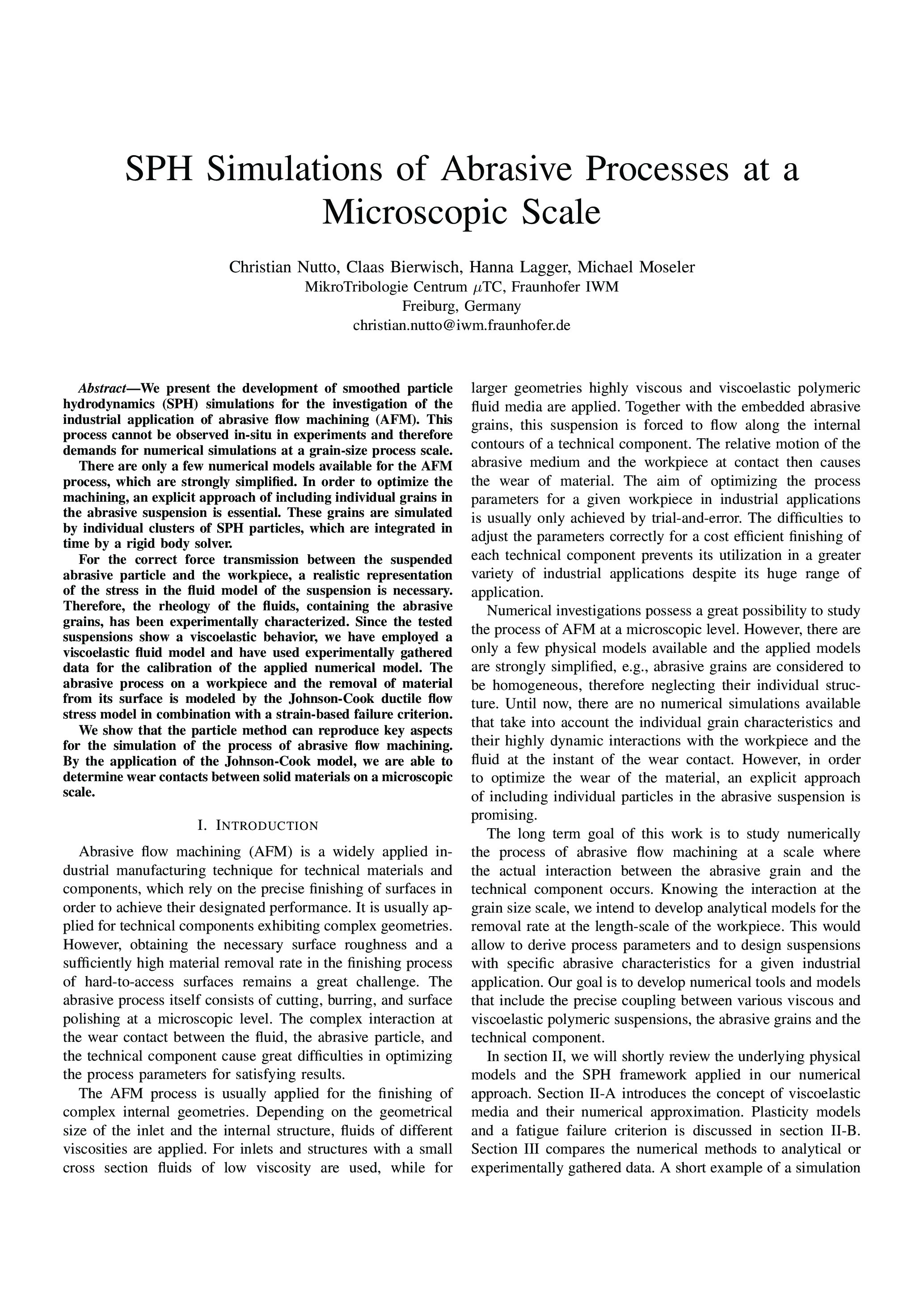Affiliation
Fraunhofer Institute for Mechanics of Materials IWM
Main category
Engineering (Mechanical engineering)
Alternative category
Natural Sciences (Physics)
Abstract
We present the development of smoothed particle hydrodynamics (SPH) simulations for the investigation of the industrial application of abrasive flow machining (AFM). This process cannot be observed in-situ in experiments and therefore demands for numerical simulations at a grain-size process scale.
There are only a few numerical models available for the AFM process, which are strongly simplified. In order to optimize the machining, an explicit approach of including individual grains in the abrasive suspension is essential. These grains are simulated by individual clusters of SPH particles, which are integrated in time by a rigid body solver.
For the correct force transmission between the suspended abrasive particle and the workpiece, a realistic representation of the stress in the fluid model of the suspension is necessary. Therefore, the rheology of the fluids, containing the abrasive grains, has been experimentally characterized. Since the tested
suspensions show a viscoelastic behavior, we have employed a viscoelastic fluid model and have used experimentally gathered data for the calibration of the applied numerical model. The abrasive process on a workpiece and the removal of material from its surface is modeled by the Johnson-Cook ductile flow stress model in combination with a strain-based failure criterion.
We show that the particle method can reproduce key aspects for the simulation of the process of abrasive flow machining. By the application of the Johnson-Cook model, we are able to determine wear contacts between solid materials on a microscopic scale.
DOI
10.18147/smn.2015/paper:3
Do you have problems viewing the pdf-file? Download paper
here
If the paper contains inappropriate content, please
report the paper. You will be redirected to the landing page.
